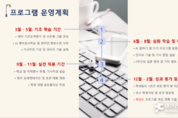'관리자' 기자의 전체기사
-

Should Students Have More Art and Music Classes?
I believe that students should have more art and music classes in school. These classes are not only fun but also help us in many ways. First, art and music help us be more creative. In other subjects like math or science, we usually follow rules. But in art and music, we can express our own ideas and feelings. This helps us think in new ways and become more creative people. Second, these classes help us relax and enjoy school more. Sometimes, studying many subjects can be stressful. When we draw, paint, or play music, we can feel happy and calm. It gives us a break and makes school life more
- 관리자 기자
- 2025-06-10 00:57
-

Why I Think Recycling Is Important
We throw away many things every day. Some of this trash can hurt the Earth. That is why I think recycling is very important. If more people recycle, we can help the planet. First, recycling helps reduce trash. If we do not recycle, all the garbage goes to landfills. These landfills take up a lot of space. If we recycle paper, plastic, and cans, we can make less trash. Then, there will be more clean places for animals and people. Second, recycling saves natural resources. When we recycle paper, we do not need to cut down so many trees. When we recycle cans and plastic, we save metal and oil. Th
- 관리자 기자
- 2025-06-10 00:53
-

Should We Have More Trees in Our School?
Many students spend a lot of time at school. We study, play, and meet friends there. For this reason, it is important to make our school a better place. One way to do this is by planting more trees. In my opinion, we should have more trees in our school for several good reasons. First, trees help make the air cleaner. Trees take in carbon dioxide and give us oxygen. If we plant more trees, the air around our school will be fresher and healthier. This is especially important in cities where there is a lot of air pollution. Breathing clean air helps students concentrate better and feel more comf
- 관리자 기자
- 2025-06-10 00:46
-

Should We Stop Using Plastic Bags?
These days, many people are talking about protecting the environment. One important topic is whether we should stop using plastic bags. In my opinion, we should try to stop using them and find better alternatives. Here are my reasons. First, plastic bags are very harmful to nature. They do not break down easily. When people throw them away, they stay in the environment for hundreds of years. Many plastic bags end up in the ocean, where they hurt sea animals. Fish, turtles, and birds often mistake plastic for food, and this can make them sick or even kill them. If we stop using plastic bags, we
- 관리자 기자
- 2025-06-10 00:43
-

영어 기자단 신청 - 별도 공지
- 관리자 기자
- 2025-06-10 00:36
-

영어 기자단 소개
- 관리자 기자
- 2025-06-10 00:32
-

스페인어 기초 회화 2
【오늘의 대화 | Today's Dialogue】 A: ¿Has comido ya?(¿Has comido ya?)벌써 밥 먹었어요? B: Todavía no. ¡Vamos a comer juntos!(Todavía no. ¡Vamos a comer juntos!)아직 안 먹었어요. 우리 같이 먹어요! A: ¡Perfecto! ¡Vamos!(¡Perfecto! ¡Vamos!)완벽해요! 가요! 【키워드 | Keywords】 단어 발음 (Pronunciation) 뜻 ¿Has comido ya? 아스 꼬미도 야? 벌써 밥 먹었어요? Todavía no 또다비아 노 아직 아니에요 ¡Vamos a comer juntos! 바모스 아 꼬메르 훈또스 같이 밥 먹어요! ¡Perfecto! 뻴펙또 완벽해요! / 좋아요! ¡Vamos! 바모스 가요! / 출발해요! 【핵심 문구 해설 | Key Phrase Breakdown】 1️⃣ ¿Has comido ya? 벌써 밥 먹었어요? 친구, 동료에게 식사 여부를 자연스럽게 묻는 표현. 스페인어권에서는 인사처럼
- 관리자 기자
- 2025-06-10 00:20
-

스페인어 기초 회화 1
【오늘의 대화 | Today's Dialogue】 A: ¡Hola! ¿Cómo te llamas?(Hola! ¿Cómo te llamas?)안녕하세요! 이름이 뭐예요? B: ¡Hola! Me llamo Minsu. ¿Y tú?(Hola! Me llamo Minsu. ¿Y tú?)안녕하세요! 저는 민수예요. 당신은요? A: Me llamo Jiyoung. ¡Mucho gusto!(Me llamo Jiyoung. ¡Mucho gusto!)저는 지영이에요. 만나서 반가워요! 【키워드 | Keywords】 단어 발음 (Pronunciation) 뜻 ¡Hola! 오라 안녕하세요! (Hello!) ¿Cómo te llamas? 꼬모 떼 야마스 이름이 뭐예요? (What’s your name?) Me llamo ~ 메 야모 ~ 제 이름은 ~입니다. (My name is ~.) ¿Y tú? 이 뚜 당신은요? (And you?) ¡Mucho gusto! 무쵸 구스토 만나서 반가워요! (Nice to meet you!) 【핵심 문구 해설 | Key Phrase B
- 관리자 기자
- 2025-06-10 00:15
-

일본어 기초 회화 1
【오늘의 대화 | Today's Dialogue】 A: こんにちは!お名前は何ですか?(Konnichiwa! Onamae wa nan desu ka?)안녕하세요! 이름이 뭐예요? B: こんにちは!私は ミンス です。あなたは?(Konnichiwa! Watashi wa Minsu desu. Anata wa?)안녕하세요! 저는 민수예요. 당신은요? A: 私は ジヨン です。はじめまして!よろしくお願いします!(Watashi wa Jiyon desu. Hajimemashite! Yoroshiku onegaishimasu!)저는 지영이에요. 처음 뵙겠습니다! 잘 부탁드려요! 【키워드 | Keywords】 단어 뜻 こんにちは 안녕하세요 (낮 인사) お名前 (정중하게) 이름 何ですか 무엇입니까? 私 나, 저 あなた 당신 はじめまして 처음 뵙겠습니다 よろしくお願いします 잘 부탁드립니다 【핵심 문구 해설 | Key Phrase Breakdown】 1️⃣ お名前は何ですか? 직역: 이름은 무엇입니까? 정중하
- 관리자 기자
- 2025-06-10 00:05
-

중국어 기초 회화 2
【오늘의 대화 | Today's Dialogue】 A: 你吃饭了吗?(Nǐ chī fàn le ma?)밥 먹었어요? B: 吃了。你呢?(Chī le. Nǐ ne?)네, 먹었어요. 당신은요? A: 还没呢。我们一起去吃吧!(Hái méi ne. Wǒmen yìqǐ qù chī ba!)아직이요. 우리 같이 먹으러 가요! 【키워드 | Keywords】 단어 병음 (Pinyin) 뜻 吃饭 chī fàn 밥을 먹다 了吗 le ma ~했어요? (~했는지 묻는 표현) 吃了 chī le 먹었어요 你呢 Nǐ ne 당신은요? 还没 hái méi 아직 안 했어요 一起 yìqǐ 같이 去 qù 가다 吧 ba ~하자 (제안할 때 쓰는 표현) 【핵심 문구 해설 | Key Phrase Breakdown】 1️⃣ 你吃饭了吗? 직역: 너 밥 먹었어? 자연스러운 표현: 밥 먹었어요? 중국에서 인사처럼 자주 쓰는 표현이에요. 건강, 안부를 묻는 느낌으로 많이 사용해요. 2️⃣ 吃了。你呢? 네, 먹었어요. 당신은요?
- 관리자 기자
- 2025-06-09 23:56
-
 Entertainment · Broadcasting
Fair Play Menarini International Award, 29th Award Ceremony marked by waves of emotion
Entertainment · Broadcasting
Fair Play Menarini International Award, 29th Award Ceremony marked by waves of emotion
-
 Entertainment · Broadcasting
The Rose, the first Korean band to perform at Coachella, confirms Seoul concert on August 30 for “Once Upon a WRLD”
Entertainment · Broadcasting
The Rose, the first Korean band to perform at Coachella, confirms Seoul concert on August 30 for “Once Upon a WRLD”
-
 Culture · Events
Incheon Port Authority kicks off the 6th Incheon International Marine Forum in Songdo, Incheon, to look into the future of the global marine industry
Culture · Events
Incheon Port Authority kicks off the 6th Incheon International Marine Forum in Songdo, Incheon, to look into the future of the global marine industry
-
 Culture · Events
Seocho Symphony Orchestra to hold performances in Berlin, Germany, and London, England, commemorating the 80th anniversary of liberation and the 75th anniversary of the Korean War
Culture · Events
Seocho Symphony Orchestra to hold performances in Berlin, Germany, and London, England, commemorating the 80th anniversary of liberation and the 75th anniversary of the Korean War
-
 Culture · Events
Gyeonggi Province to hold its largest job fair for middle-aged and older workers on the 9th. 1,000 jobs to be filled.
Culture · Events
Gyeonggi Province to hold its largest job fair for middle-aged and older workers on the 9th. 1,000 jobs to be filled.
-
 International
Jeju's soul resonates in Rome... Singing of the pain and reconciliation of Jeju 4·3
International
Jeju's soul resonates in Rome... Singing of the pain and reconciliation of Jeju 4·3
-
 International
Seoul City establishes a foothold for K-Beauty and fashion to enter the European market, promoting Milan as a base
International
Seoul City establishes a foothold for K-Beauty and fashion to enter the European market, promoting Milan as a base
-
 Medical · Health
Korean Centers for Disease Control and Prevention: Increase in hand, foot, and mouth disease among infants and young children! Follow preventive measures and maintain good hygiene to stay healthy.
Medical · Health
Korean Centers for Disease Control and Prevention: Increase in hand, foot, and mouth disease among infants and young children! Follow preventive measures and maintain good hygiene to stay healthy.
-
 Medical · Health
Korean Centers for Disease Control and Prevention: Injured patients account for the largest proportion of hospitalized patients; falls are the main cause
Medical · Health
Korean Centers for Disease Control and Prevention: Injured patients account for the largest proportion of hospitalized patients; falls are the main cause
-
 Medical · Health
WHO and international health experts visit Wanju local food production sites
Medical · Health
WHO and international health experts visit Wanju local food production sites
-
2025-12-09 14:30
Seong Ki-sun's Book Launch Event ‘Education in Turmoil’...Seeking Hope for Public Education Through Basic, Relationship, Growth (BRG)
-
2025-11-04 13:48
JP EDU - Hidden Opportunities in Japan: English-Taught International Studies Programs Open Doors to Prestigious Universities
-
2025-10-27 11:03
대한민국영어신문 주니어 영어 기자단 모집 (2026년 제 1기)
-
2025-08-07 01:19
Lotte Scholarship Foundation Provides 300 Job Seekers with 300 Million Won in Scholarships and Employment Training Support
-
2025-08-01 09:42
Lotte Scholarship Foundation to Provide 270 Million Won in Scholarships to 100 Teenage Mentors





















